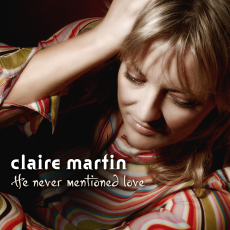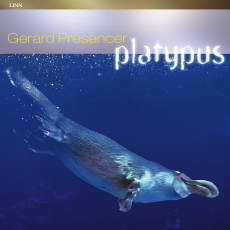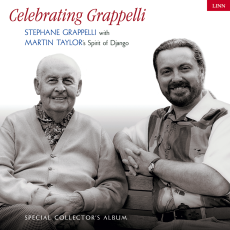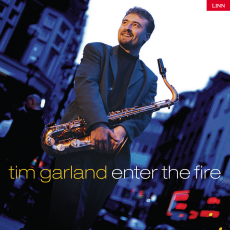Gerard Presencer
Gerard Presencer
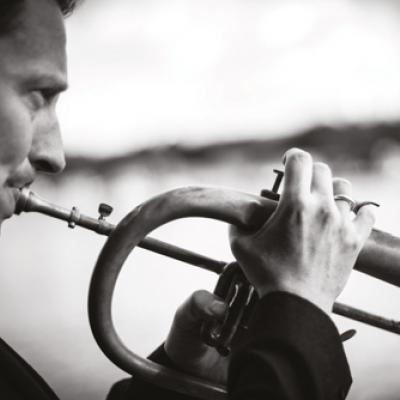
London based Jazz trumpeter who effortlessly interweaves original tunes touched with nu jazz.
Biography
Born in London on September 1972, Gerard Presencer showed his first interest in what was to become his chosen instrument, the trumpet, at nine. His anthropologist/psychologist father Alain was interested in many types of music - he trained as an opera singer as well as selling over a quarter of a million copies of the album Singing Bowls of Tibet - but it was an item from his 4,000-strong jazz record collection, featuring Roy Eldridge playing a characteristically flamboyant solo on a Jazz At The Philharmonic live date, that resulted in his son’s determination to become a trumpeter.
Presencer recalls: "Roy Eldridge really grabbed me, revving that trumpet up, but Louis Armstrong was the first trumpeter I studied properly, listening to his solos and getting the books. I then went to the bop and hard-bop people - Dizzy Gillespie, Lee Morgan, Freddie Hubbard, Woody Shaw - but Clifford Brown is my favorite - everything he did was perfect: fantastic technique, very musical ideas." This last-named legend, who died tragically early in a car crash, at 25, after a meteoric career gracing the bands of Max Roach and Lionel Hampton with his uniquely pure-toned, joyous and apparently inexhaustible inventiveness, was to frequently cited during Presencer’s teenage years by jazz writers struggling to find past players with whom the young trumpeter could be meaningfully compared.
Presencer had been playing with the National Youth Jazz Orchestra for nearly five years, learning to read and to accommodate his style to section work, when he got his first important break. He was spotted on a 1988 jazz boat trip out of Southampton, where he was playing with saxophonist Tim Colwell, by Clark Tracey. The celebrated drummer/leader immediately asked Presencer to dep for Guy Barker in his quintet, and subsequently formed a quartet, featuring the 15-year-old as his sole front-line player. "Learning to listen to the rhythm section" and " relying on my imagination, having no saxophone to fall back on, to share solos with" are the two vital skills Presencer recalls learning in Tracey’s band, but it was his securing of the trumpet chair in the prestigious Pizza Express Modern Jazz Sextet that really launched him on the London jazz scene:" That was very important, because I got to play, week after week, with some extremely good players - sharing a front line with Alan Barnes and Dave O’Higgins, and their occasional deps, Tim Garland and Andy Panayi - and it was about then, when I was 18, that I began playing with Stan Tracey, in his big band, octet and septet."
This last connection was responsible for one of Presencer’s highest-profile appearances, at the Queen Elizabeth Hall concert marking Stan Tracey’s fiftieth year as a professional musician in 1993. Tracey and Presencer enraptured a capacity crowd with two faultless duo performances - of John Coltrane’s "Some Other Blues" and the Robin/Rainger classic "Easy Living" - and the promise the trumpeter had shown in the bands of Charlie Watts (with whom he has made four albums and toured the world ) and John Dankworth was seen to have come triumphantly to fruition.
Since then, Presencer has become a fixture on the London music scene, winning the Best Trumpeter category in the BT Jazz Awards in 1995 and 1997, and playing with a number of leaders in a great variety of musical contexts. With Britain’s leading alto player, Peter King, he plays elegant, agile, post-bop jazz; under composer Colin Towns, he contributes blistering, whip-smart solos to the plangently eloquent music of the Mask Orchestra; with bassist Lawrence Cottle’s tight fusion band, he transforms himself into the archetypal terse, funky trumpeter alongside alto player Nigel Hitchcock.
Such versatility is a function of contemporary musicians’ entirely sensible refusal to allow themselves to be pigeonholed. In the 1990’s Presencer is just as likely to contribute his unique trumpet skills to record dates and live appearances by the likes of Ray Charles, James Brown, Sting, Incognito and Kula Shaker, or to the music of long-time associates the Brand New Heavies, as to a straightahead jazz band.
Indeed, Presencer’s most celebrated recorded performance, which has lead to his being described as "subliminally, the most famous trumpeter in the world", can be heard on US3’s monster hit "Canteloop", to which he contributed a solo so much in the style of Freddie Hubbard that the great man himself reportedly wondered why he wasn’t receiving royalties for what he imagined was one of his performances.
With such a many-hued stylistic palette at his disposal, the rich variety of music played by Presencer’s own band, Platypus, comes as no surprise. The name itself, he asserts, is symbolic of "an attempt to transcend the dogmatic classification that can be such a hindrance to creativity within the current music scene. As a versatile musician, versed in everything from avant-garde, free jazz to hard-core rap, I’ve simply tried to reflect my musical taste, ignoring the restrictions that a so-called ‘jazz’ or ‘funk’ album would labour under: it’s simply a mixture - entirely appropriate to our postmodern era - of what I like."
Thus, while Presencer’s fleet neo-bop jazz skills are very much in evidence during the album’s more straightahead, acoustic moments, the funk-and pop-based lessons he’s learned in the studios over the past decade are also very much on show. He explains: " While funk players don’t necessarily need the same soloing capabilities over fast-moving chord sequences that jazz players have to develop, its a fact that they have to make immediate emotional contact in what they do. In pop sessions, too, I’ve had to learn to construct a four bar solo, maybe, and get my message across instantly, and that’s such a great discipline.
So, while Presencer’s most obvious stylistic and technical debts are to Cifford Brown, with the immediately accessible yet surprisingly subtle, multi-textured music of "Platypus" he nods towards a figure whose protean inventiveness and constant questing for new sounds and approaches makes him the role-model for 1990s musicians: Miles Davis. Presencer sums up: "I’ve been on the jazz scene for ten years, and I want to play the widest variety of music possible. The obvious inspiration is Miles Davis - one of my biggest influences used to be early-1960s Miles: now it’s Bitches Brew, Live-Evil, or On the Corner - music with a backbeat, but developmental…." The music of "Platypus", like the egg-laying mammal itself, may appear to be composed of numerous apparently disparate elements, but is, in reality, superbly well adapted to its environment coming as it did during the challenging, uniquely multi late 1990s.
